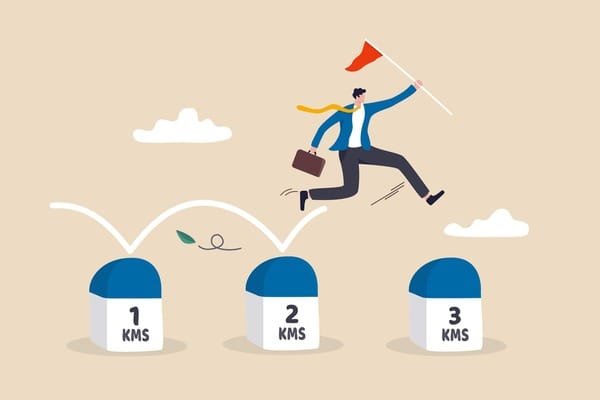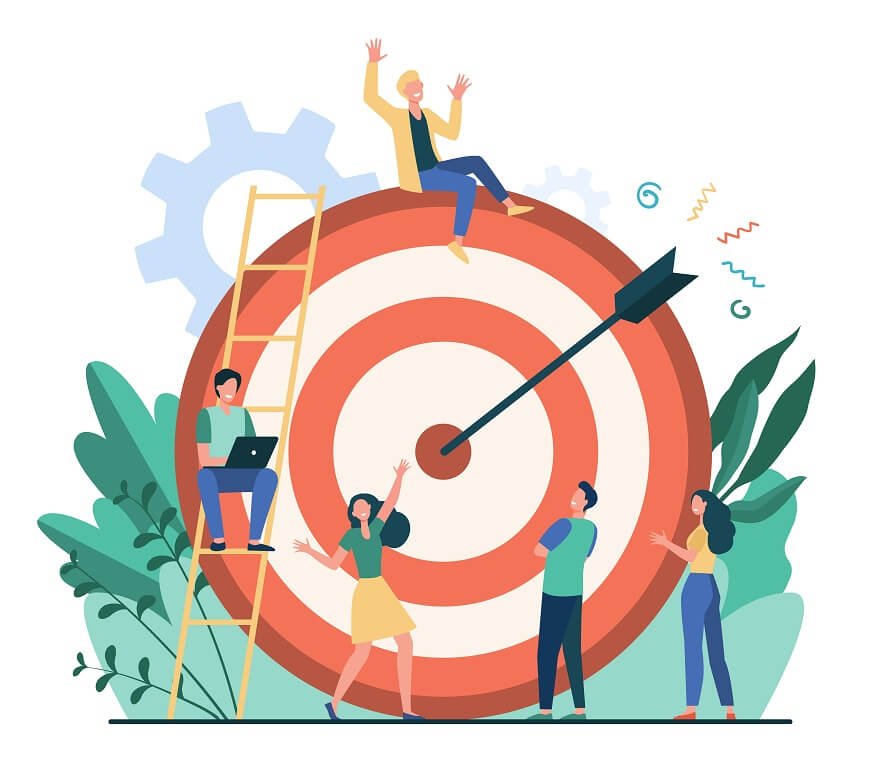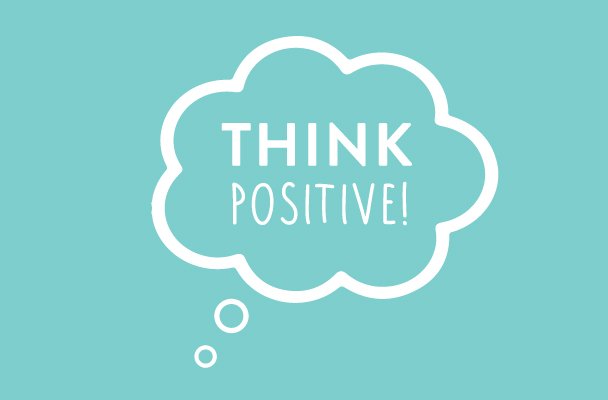
BELIEVE IN YOURSELF-Every person has dreams, aspirations, and a unique potential to achieve great things in life. However, many of us struggle to reach our full potential due to the presence of limiting beliefs. These self-imposed barriers can prevent us from pursuing our goals, taking risks, and living a life that aligns with our true potential. Overcoming these limiting beliefs is crucial for personal growth and success. This blog will explore what limiting beliefs are, how they affect us, and provide practical strategies to overcome them and unlock your true potential
BELIEVE IN YOURSELF
What Are Limiting Beliefs?

Limiting beliefs are deeply ingrained thoughts or perceptions that we hold about ourselves, others, or the world around us. These beliefs often develop over time, shaped by our experiences, upbringing, culture, and environment. While some beliefs can be empowering and positive, limiting beliefs are those that constrain us, hinder our progress, and prevent us from reaching our full potential.
Limiting beliefs typically manifest as negative self-talk or internal narratives that reinforce feelings of inadequacy, fear, or self-doubt. Common limiting beliefs include thoughts like “I’m not good enough,” “I don’t deserve success,” or “I’m too old to start something new.” These beliefs act as mental barriers, creating a self-fulfilling prophecy where we unconsciously sabotage our efforts to succeed.
How Limiting Beliefs Develop
Limiting beliefs often develop during childhood or adolescence when our minds are particularly impressionable. They can be influenced by various factors, including:
- Parental Influence: The beliefs and attitudes of our parents or caregivers can significantly impact our self-perception. For example, a child who is constantly criticized or compared to others may develop a belief that they are not good enough.
- Social and Cultural Conditioning: Society and culture play a significant role in shaping our beliefs. Messages from the media, peers, and societal norms can influence how we see ourselves and our capabilities.
- Past Experiences: Traumatic or negative experiences can lead to the formation of limiting beliefs. For instance, a failure in a particular area, such as academics or sports, might lead to the belief that one is incapable of succeeding in that area.
- Self-Comparison: Comparing ourselves to others can foster limiting beliefs. When we perceive others as more successful or capable, we may start to believe that we are less worthy or competent.
- Fear of Failure: The fear of failure is a common source of limiting beliefs. When we fear failure, we may develop beliefs that discourage us from taking risks or trying new things.
The Impact of Limiting Beliefs
Limiting beliefs can have a profound impact on various aspects of our lives, including our personal and professional development, relationships, and overall well-being. Here are some of the ways in which limiting beliefs can affect us:
- Reduced Self-Confidence: Limiting beliefs erode self-confidence by convincing us that we are not capable or deserving of success. This lack of confidence can prevent us from pursuing opportunities or taking on challenges.
- Stagnation: Limiting beliefs keep us stuck in our comfort zones, preventing growth and progress. When we believe that we cannot achieve something, we are less likely to take the necessary steps to make it happen.
- Fear and Anxiety: Limiting beliefs often lead to fear and anxiety, particularly when it comes to taking risks or stepping outside of our comfort zones. This fear can paralyze us and prevent us from taking action.
- Self-Sabotage: When we hold limiting beliefs, we may unconsciously engage in self-sabotaging behaviors that hinder our success. This could include procrastination, avoidance, or giving up too easily.
- Unfulfilled Potential: Perhaps the most significant impact of limiting beliefs is that they prevent us from realizing our full potential. We may settle for less than we deserve or shy away from pursuing our true passions and goals.
Identifying Your Limiting Beliefs
1. Recognize Negative Self-Talk

The first step in overcoming limiting beliefs is to become aware of them. Pay attention to your internal dialogue and the thoughts that cross your mind, especially in challenging situations. Negative self-talk is often a manifestation of limiting beliefs. Common examples of negative self-talk include:
- “I can’t do this.”
- “I’m not smart enough.”
- “I’ll never succeed.”
- “I’m too old/young to try this.”
- “People like me don’t achieve that kind of success.”
When you notice these thoughts, take a moment to reflect on them. Ask yourself if these thoughts are truly reflective of reality or if they are simply beliefs you have internalized over time.
2. Identify the Source of the Belief

Once you have recognized a limiting belief, try to identify its source. Understanding where the belief originated can help you gain perspective and challenge its validity. Ask yourself:
- When did I first start believing this?
- Was there a specific event or experience that led to this belief?
- Did someone else, such as a parent, teacher, or peer, influence this belief?
- How has this belief been reinforced over time?
Identifying the source of the belief can help you separate it from your current reality and begin the process of letting it go.
3. Examine the Evidence

Limiting beliefs often persist because we accept them as truth without questioning their validity. To challenge these beliefs, examine the evidence for and against them. Consider the following:
- What evidence supports this belief?
- What evidence contradicts this belief?
- Have there been times when I succeeded despite this belief?
- How do others who don’t hold this belief approach similar situations?
By critically examining the evidence, you can begin to see that limiting beliefs are often based on faulty assumptions or outdated information.
4. Reframe the Belief

Reframing is a powerful technique for transforming limiting beliefs into empowering ones. Instead of accepting a limiting belief as truth, try to reframe it in a more positive and realistic way. For example:
- Limiting Belief: “I’m not good enough to succeed.”
- Reframed Belief: “I have unique strengths and talents that can contribute to my success.”
- Limiting Belief: “I always fail when I try something new.”
- Reframed Belief: “Every new experience is an opportunity to learn and grow, even if I don’t succeed right away.”
Reframing helps shift your mindset from one of limitation to one of possibility and growth.
5. Test the Belief

Once you’ve identified and reframed a limiting belief, put it to the test. Take small steps to challenge the belief and gather evidence that contradicts it. For example, if you believe that you’re not capable of public speaking, start by speaking in front of a small, supportive group. As you build confidence and gain positive experiences, your limiting belief will begin to weaken.
Strategies for Overcoming Limiting Beliefs
1.Practice Self Compassion

Overcoming limiting beliefs requires patience and self-compassion. It’s important to acknowledge that everyone has limiting beliefs and that it’s a normal part of the human experience. Rather than criticizing yourself for having these beliefs, practice self-compassion by treating yourself with kindness and understanding.
- Acknowledge Your Efforts: Recognize and celebrate the steps you take to challenge your limiting beliefs, no matter how small.
- Be Patient: Changing deeply ingrained beliefs takes time. Be patient with yourself and understand that progress may be gradual.
- Forgive Yourself: If you find yourself slipping back into old patterns, forgive yourself and recommit to the process of growth.
2. Surround Yourself with Positive Influences

The people you surround yourself with can have a significant impact on your beliefs and mindset. Seek out individuals who uplift and support you, and who encourage you to reach your full potential.
- Build a Supportive Network: Surround yourself with friends, mentors, and colleagues who believe in you and your abilities. Their positivity and encouragement can help counteract limiting beliefs.
- Avoid Negative Influences: Be mindful of people who reinforce your limiting beliefs or bring negativity into your life. Limit your exposure to these influences, and focus on building relationships that empower you.
3. Set Realistic and Achievable Goals

Setting realistic and achievable goals can help you build confidence and overcome limiting beliefs. Start by setting small, manageable goals that align with your long-term aspirations. As you achieve these goals, you’ll build momentum and begin to challenge the belief that you’re incapable of success.
- Break Down Big Goals: If a goal feels overwhelming, break it down into smaller, actionable steps. This makes the goal more attainable and allows you to celebrate progress along the way.
- Focus on Progress, Not Perfection: It’s important to focus on progress rather than perfection. Every step you take towards your goal, no matter how small, is a victory in overcoming limiting beliefs.
4. Visualize Success

Visualization is a powerful tool for overcoming limiting beliefs and building confidence. By visualizing yourself succeeding, you can create a positive mental image that reinforces your belief in your abilities.
- Create a Vision Board: A vision board is a visual representation of your goals and dreams. Fill it with images, quotes, and affirmations that inspire you and reinforce your belief in your potential.
- Practice Visualization Exercises: Spend a few minutes each day visualizing yourself achieving your goals. Imagine the steps you’ll take, the challenges you’ll overcome, and the satisfaction of reaching your desired outcome.
5. Challenge Negative Thoughts

When you notice negative thoughts or limiting beliefs creeping in, challenge them immediately. Replace negative self-talk with positive affirmations and remind yourself of your strengths and past successes.
- Use Positive Affirmations: Affirmations are positive statements that can help reprogram your mind and reinforce empowering beliefs. Examples include “I am capable of achieving my goals,” “I am deserving of success,” and “I have the strength to overcome challenges.”
- Question the Validity of Negative Thoughts: When a negative thought arises, ask yourself if it’s truly reflective of reality. Consider alternative explanations and remind yourself of times when you proved that thought wrong.
6. Embrace Failure as a Learning Opportunity

Fear of failure is a common source of limiting beliefs. However, failure is an inevitable part of life and an essential component of growth. Rather than fearing failure, embrace it as a learning opportunity.
- Reframe Failure: Instead of viewing failure as a sign of inadequacy, see it as an opportunity to learn and grow. Each failure provides valuable insights that can help you improve and succeed in the future.
- Take Calculated Risks: Overcoming limiting beliefs often requires stepping outside of your comfort zone and taking risks. By taking calculated risks, you can prove to yourself that you’re capable of handling challenges and achieving success.
7. Seek Professional Help if Needed

In some cases, limiting beliefs may be deeply ingrained and difficult to overcome on your own. If you find that your beliefs are significantly impacting your life, consider seeking help from a therapist or coach.
- Cognitive-Behavioral Therapy (CBT): CBT is a type of therapy that focuses on identifying and challenging negative thought patterns. A CBT therapist can help you recognize and reframe limiting beliefs.
- Coaching: A life coach or mentor can provide guidance, support, and accountability as you work to overcome limiting beliefs and achieve your goals.
8. Celebrate Your Successes

Finally, it’s important to celebrate your successes, no matter how small. Each time you challenge a limiting belief and take a step towards your goals, you’re making progress. Celebrating these victories reinforces your belief in your abilities and motivates you to continue growing.
- Keep a Success Journal: Document your successes and achievements in a journal. Reflecting on your progress can help you stay motivated and recognize how far you’ve come.
- Reward Yourself: Treat yourself to something special when you achieve a goal or overcome a significant challenge. This could be anything from a small treat to a larger reward, depending on the accomplishment.
Conclusion
Limiting beliefs are powerful barriers that can prevent us from reaching our true potential. However, with awareness, effort, and the right strategies, it is possible to overcome these beliefs and unlock the greatness within us. By identifying and challenging limiting beliefs, practicing self-compassion, setting realistic goals, and surrounding ourselves with positive influences, we can break free from the constraints of our minds and achieve the success and fulfillment we deserve. Remember, the only limits that truly exist are the ones we impose on ourselves. When we choose to let go of these limitations, the possibilities are endless.
This blog provides a comprehensive guide to understanding, identifying, and overcoming limiting beliefs, helping readers unlock their true potential and live a more fulfilling life.
For BUYING KITCHEN UTENSILS-CLICK HERE
Follow Our Youtube Channel-CLICK HERE
FOLLOW OUR FACEBOOK PAGE-CLICK HERE
FOLLOW OUR FACEBOOK GROUP-CLICK HERE